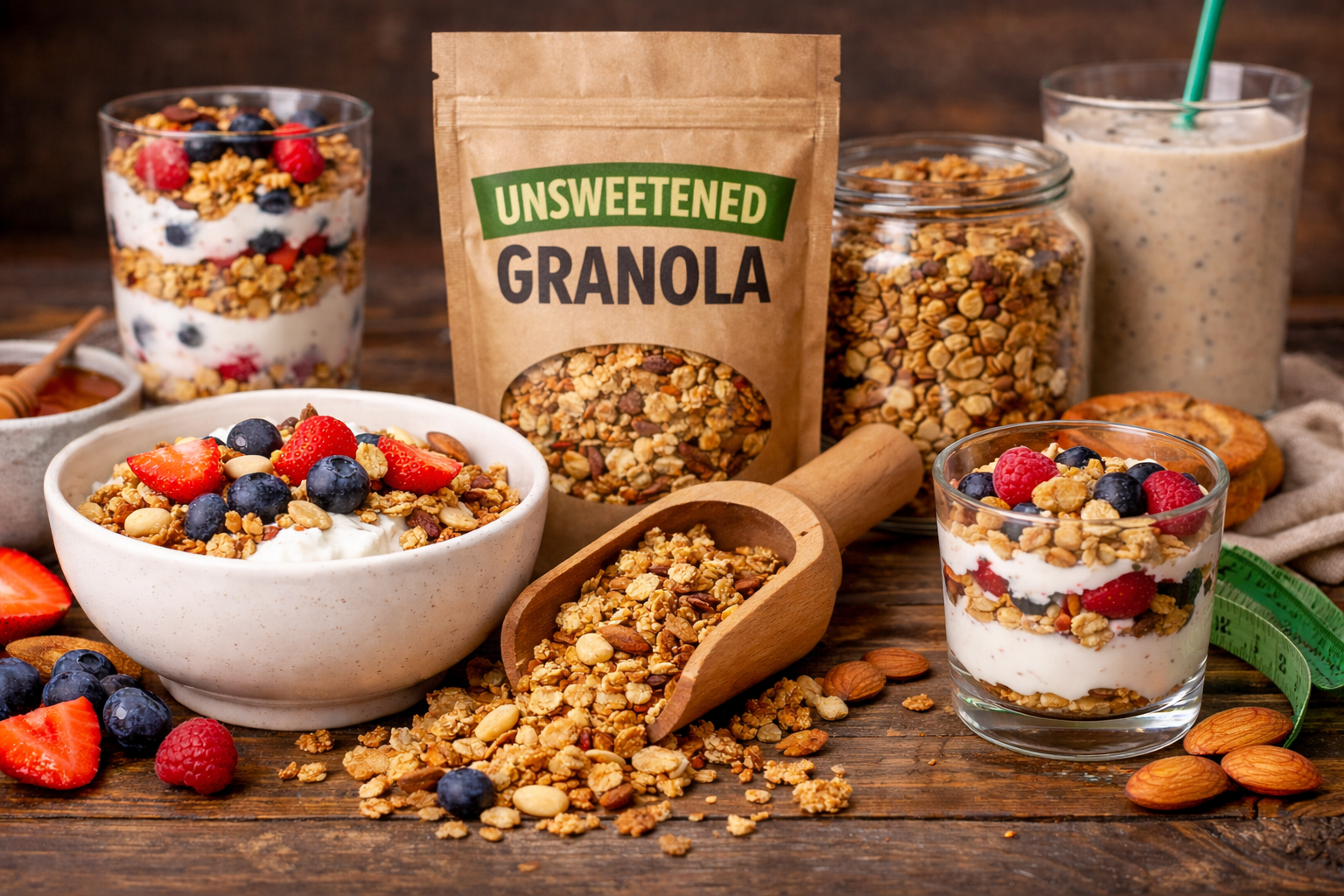Food Branding and Rebranding in the AI Age
The food and beverage industry is undergoing a significant transformation. Brands are not only dealing with evolving consumer preferences but also fierce competition. Research indicates that 73% of Gen Z is more concerned about the environmental sustainability of their food choices compared to older generations.
They are also 21% more likely to try new beverages each month and 11% more likely to experiment with packaged foods. Notably, 55% of Gen Z uses social media platforms like TikTok for food discovery, making digital engagement crucial for brands aiming to connect with this audience. Furthermore, 68% of Gen Z shops for groceries online, reflecting their preference for convenience and accessibility.
To stay relevant, brands must innovate, particularly in how they present themselves. This is where AI-powered food branding comes into play.
With AI in food marketing, companies can access real-time data on consumer behavior and trends. This article explores how artificial intelligence is revolutionizing food branding and rebranding strategies, making it crucial for brands to evolve and connect with their audience.
Food branding matters more than ever in the AI age

The food industry is rapidly shifting, driven by changing preferences for health, sustainability, and personalization. AI technology has enabled brands to make data-driven decisions that are timely and accurate. But what does this mean for branding?
The role of branding in consumer decision-making
Branding is the first impression consumers get, and it plays a pivotal role in how they choose products. In a crowded market, an effective brand identity can differentiate a product on the shelf. It’s more than just a logo—it’s a way to communicate values and promises. With AI tools, brands can now track consumer preferences and predict emerging trends, ensuring their branding evolves alongside their audience.
Why rebranding is essential in the AI-driven marketplace
Rebranding isn’t just for companies that have lost relevance; it’s a proactive strategy to ensure future growth. Food and beverage rebranding helps companies stay aligned with shifting trends, especially as consumer priorities shift towards sustainability and health-conscious products. AI enables brands to take rebranding to the next level by providing predictive insights into what their target demographics want.
How AI is transforming food branding
Artificial intelligence is not only reshaping the way brands operate but also how they communicate with their audiences. From predictive insights to targeted messaging, AI offers a multitude of tools for food brand innovation.
Predictive insights: understanding emerging trends
One of the significant advantages of using AI in branding is the ability to predict future trends. By analyzing vast amounts of data, AI can highlight what’s gaining traction in the market—whether it’s plant-based foods, sustainable packaging, or low-sugar alternatives. Tools like Tastewise provide food brands with real-time data, enabling them to act fast and innovate with confidence. AI surveys like Consumer Perceptions of Food Branding in the Digital Age can reveal valuable insights about preferred personalization. With AI, companies can survey millions of data points, validate new concepts, and ensure they stay ahead of their competitors.
Customizing brand messaging for niche audiences
Consumer preferences are becoming more fragmented. Gen Z, for example, looks for brands that align with sustainability and transparency, while older generations might prioritize price or nostalgia. AI allows brands to segment their audience and tailor messages to these niche demographics. This is especially useful for sustainable food branding, where consumers are hyper-aware of environmental claims. With AI, brands can target their message to resonate deeply with each audience segment.
Top 5 rebranding trends to stay on top of in the AI-driven food industry
The rise of AI has introduced several new trends that are critical for the food and beverage industry. Let’s explore five key trends that are shaping food and beverage rebranding strategies today.
The shift to sustainability: branding for the future
Sustainability is no longer a trend but a necessity. Brands that focus on sustainable practices—from eco-friendly packaging to ethical sourcing—are gaining favor with consumers. AI helps brands communicate these practices effectively by analyzing which sustainability messages resonate most with their target audience.
Health-conscious consumers: how to position your brand
Consumers are increasingly focused on health, and brands need to reflect this in their identity. Whether it’s promoting organic ingredients, sugar-free options, or plant-based products, AI allows companies to understand which health claims are most effective. By analyzing consumer behavior, brands can adjust their positioning to meet the demands of health-conscious shoppers.
Personalization: catering to niche audiences
The modern consumer expects a personalized experience. With AI, brands can create hyper-targeted campaigns that speak directly to niche demographics, whether it’s gluten-free enthusiasts, vegan consumers, or eco-conscious millennials. AI can even generate customized recipes to cater to specific tastes and dietary needs, crafting unique offerings like berry bliss vegan waffles for plant-based consumers. AI allows brands to identify these segments and craft messages that feel personal and relevant.
Digital-first branding: engaging the online consumer
In today’s digital world, having a strong online presence is vital. AI-driven insights help brands tailor their digital strategies to engage consumers where they spend the most time—whether that’s social media, e-commerce platforms, or mobile apps. Brands can optimize their messaging to ensure maximum impact across all digital channels.
Transparent storytelling: building consumer trust
Transparency is critical in building consumer trust. Brands that openly share their sourcing practices, production methods, and environmental impact foster loyalty. AI enables brands to track and highlight these aspects of their business, ensuring their story is both authentic and aligned with consumer values. This is especially important for sustainable food branding, where transparency can make or break consumer trust.
The future of food branding with AI
Looking forward, AI’s role in branding will only continue to grow. From helping brands understand consumer preferences to automating content creation, AI is at the forefront of innovation. For example, AI tools are now being used in packaging design and product development, ensuring that every aspect of a brand is aligned with consumer expectations.
The role of AI in packaging, positioning, and product development
AI doesn’t just stop at marketing. It can influence the very products being developed, ensuring they are positioned effectively from the start. AI-powered insights can guide everything from packaging design to ingredient selection, allowing brands to create products that resonate deeply with their audience. Tastewise, as a GenAI-Powered Consumer Data Platform, offers these insights, empowering brands to innovate risk-free.
FAQs
AI’s role in food branding includes analyzing consumer data, predicting trends, and customizing brand messages for specific audiences. It helps brands stay relevant by providing insights that allow for timely adjustments to branding strategies.
A food brand should consider rebranding when its current image no longer resonates with its target audience or aligns with emerging trends such as sustainability or health-conscious eating. AI can guide this process by providing data-driven insights on what consumers are looking for.
AI allows brands to segment their audience based on preferences such as dietary choices, lifestyle, and values. It then provides insights into how to tailor messages to each demographic, making marketing efforts more effective.
AI is reshaping the way food and beverage brands approach both branding and rebranding. By leveraging AI-powered food branding and rebranding, companies can ensure they stay ahead of the curve, offering innovative and personalized experiences that resonate with modern consumers. Platforms like Tastewise provide the tools necessary for brands to execute these strategies effectively, making them leaders in the evolving food industry.




